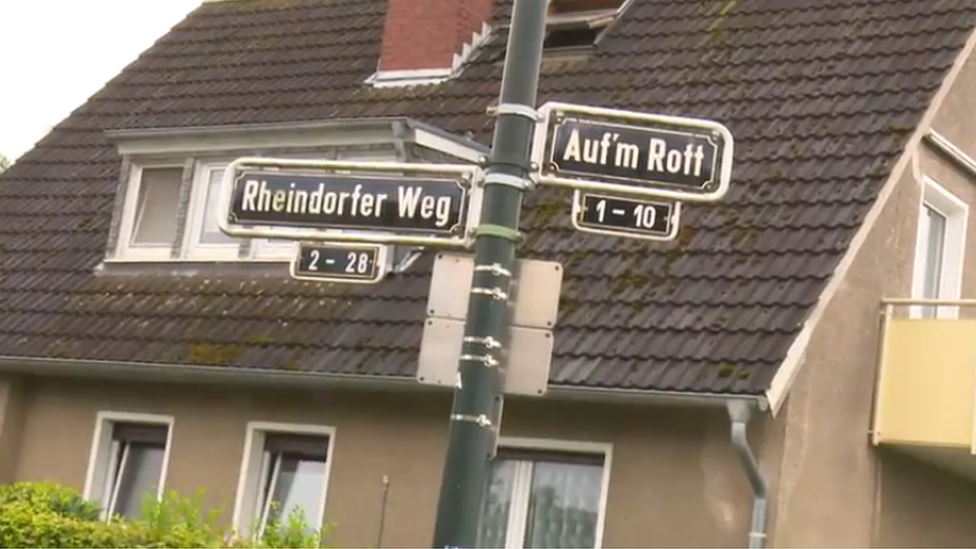Dusseldorf residents told to pay for Nazi-era road
- Published

People living on Auf'm Rott in southern Dusseldorf were not expecting to be billed for work done in 1937
Homeowners on a street in Germany have been told they must foot the bill for their road's construction - even though it's been there for nearly 80 years.
Residents on Auf'm Rott, in suburban Dusseldorf, went to court after city authorities told them pay an average of 10,000 euros ($11,000; £8,400) per household for what looked like a long-established road, Die Welt reports, external.
The bills included a conversion from the Nazi-era Reichsmark currency into euros for the original road surface, first laid in 1937, which is being dubbed "Hitler asphalt" by the German media. The figures were also adjusted for inflation.
While homeowners were perplexed, a court has now confirmed that they must cough up the cash. It determined that while construction began in the 1930s, the road was only officially completed in 2009 when pavements were added. For the intervening period it was considered to be under development.
In Germany, residents have to pay a "development contribution" to the local authority for things like new roads, cycle paths and street lighting.
According to Die Welt, the council says people weren't required to contribute towards road construction under the Third Reich, so the costs are simply being billed now. The court agreed, saying that the length of time involved doesn't matter. "There is no statute of limitations in relation to the construction work," says Franziska Hoette, a judge at Dusseldorf's Administrative Court.
So, Auf'm Rott's current residents will be shelling out for the "Hitler asphalt", streetlamps dating back to 1956, a sewer from the 1970s, and pavements and greenery added in 2009. But despite taking a sizeable financial hit, the residents appear to have accepted the court's verdict. Spiegel Online reports, external that they've withdrawn their complaint, saying: "If this is how it is, then this is how it is."
Next story: Booze ban for China region's civil servants
Use #NewsfromElsewhere to stay up-to-date with our reports via Twitter, external.